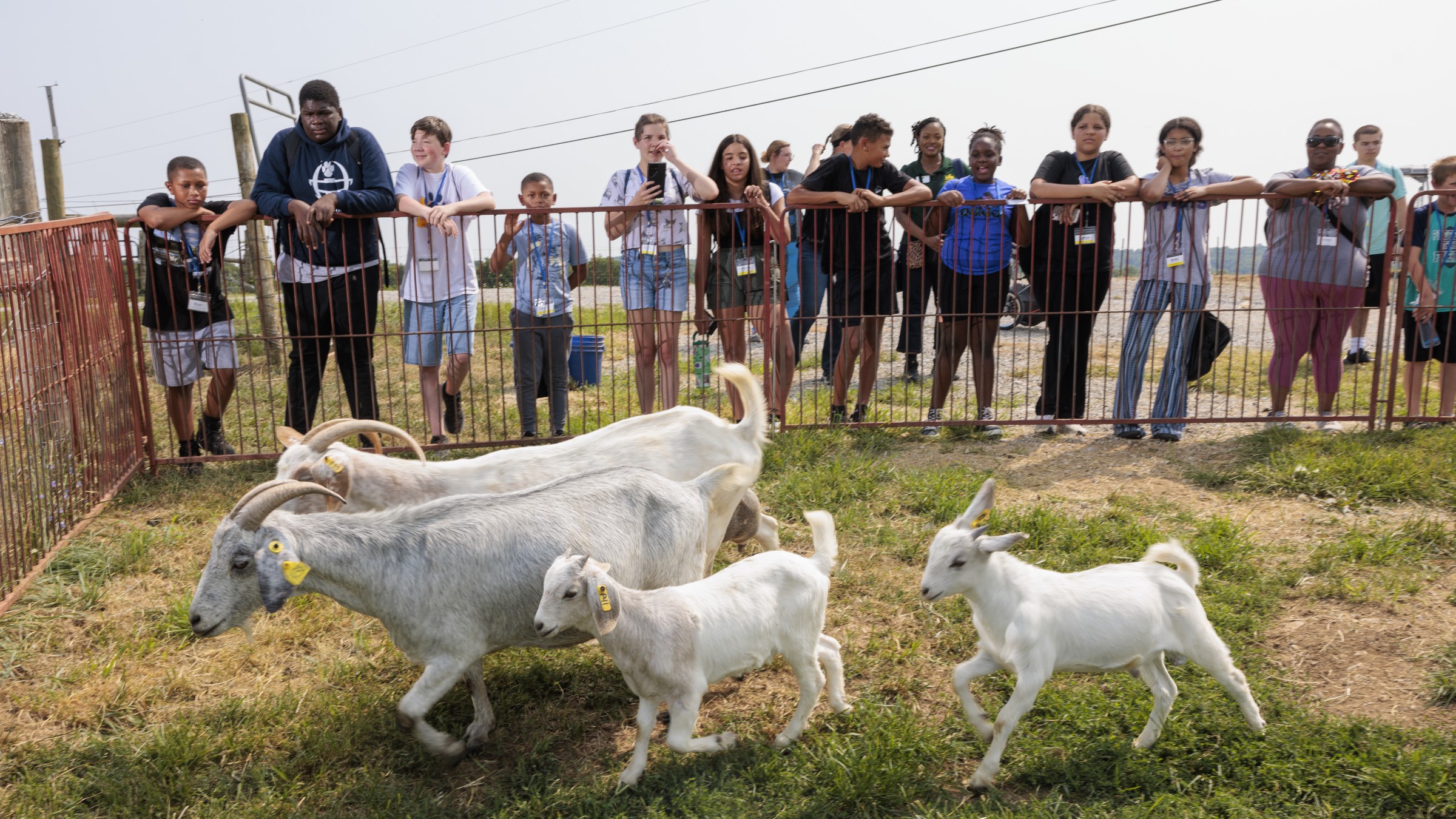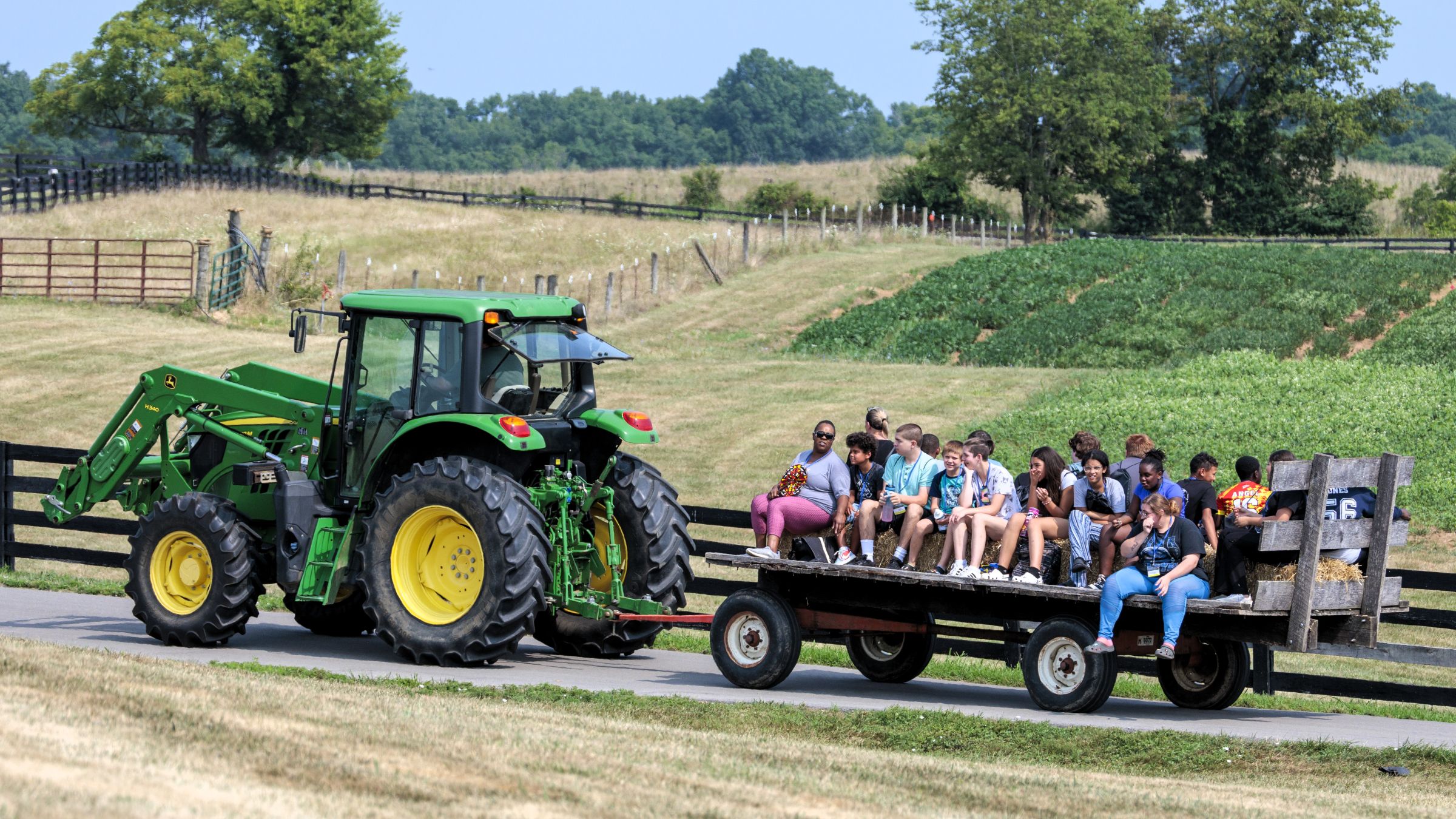University of Kentucky, Kentucky State University partner on USDA grant to promote change for at-risk youth and families
University of Kentucky, Kentucky State University partner on USDA grant to promote change for at-risk youth and families


In the Commonwealth of Kentucky, many children, youth and families are generally considered to be “at-risk” across several societal areas. Some of these areas include the number of children living in foster care, homelessness rates and the percentage of families living at or below the federal poverty level — according to the Kids Count Data Center (2022) and the Food Research and Action Center (2016).

At-risk populations without proper support from their communities are more likely to have low literacy and education; poor health and well-being; negative social behaviors and a lack of workforce development readiness skills. To help address the needs of youth and families, Kentucky Cooperative Extension has identified opportunities for collaborative programming.
Recently, the U.S. Department of Agriculture’s National Institute of Food and Agriculture (NIFA) awarded a five-year, nearly $1.3 million joint-project grant to the Cooperative Extension Service at UK Martin-Gatton College of Agriculture, Food and Environment and Kentucky State University (KSU) to launch the Children, Youth and Families at Risk (CYFAR) Sustainable Community Project.
Part of the Promoting Change Through Youth Engagement project, CYFAR’s resources provide community-tailored life skills training for children, youth and families. Martin-Gatton CAFE and KSU researchers will work collaboratively to design and deliver educational programming targeting four Kentucky counties: Bullitt, Fayette, Jefferson and Pulaski.
CYFAR programming will provide comprehensive life skills around a wide range of content based on each community’s stated wants and needs. Program topics may include problem-solving and conflict resolution skills, cooking, resume writing and mock job interviews, budgeting, career exploration, outdoor recreational and service-learning programs, relationship skills, nutrition, hygiene, time management, preparation for higher education or vocational education, drug prevention and more.
Kerri Ashurst, senior extension specialist for Family and Consumer Sciences at Martin-Gatton CAFE and one of the program’s principal investigators, sees this as an opportunity to strengthen an existing partnership between the two Kentucky land-grant institutions and further a shared commitment to helping at-risk populations.
“When our universities come together with our resources, people and missions, we can reach more and better serve our communities,” Ashurst said. “Our primary goal is to integrate CYFAR into ongoing initiatives to ensure that everyone can be part of Extension, 4-H or family and consumer sciences programs. Our hope is that we will help move our youth toward success and meaningful contribution in adulthood through educational experiences, service learning and leadership skills to help them find their passion and voice in achieving their goals.”
Shawn Gardner, 4-H youth development program leader at KSU and one of CYFAR’s principal investigators, believes that this partnership with UK will help reach more at-risk youth and families while bringing more awareness.
“Together, we are operating to be one extension team, but both teams will be doing different things,” Gardner said. “In Jefferson and Fayette counties, CYFAR programs will include many wrap-around services to provide unwavering support, so they have the resources they need to thrive.”
Along with helping youth gain additional critical skills, CYFAR’s objectives include aligning additional services, resources and partnerships within these counties’ communities. Over the project’s duration, the data collected will use a multidisciplinary approach to address positive youth development through programming based on local needs.
The team behind this project also includes UK’s Kenneth Jones and Tyrone Atkinson as co-investigators on the grant.
About CYFAR
The Children, Youth, and Families At-Risk (CYFAR) Program is a national program funded by USDA’s National Institute of Food and Agriculture in the Division of Youth and 4-H. The CYFAR mission is to provide resources to the Land-grant University System and the Cooperative Extension System so that, in collaboration with other organizations, they can develop and deliver educational programs that equip at-risk youth with the skills they need to lead positive, productive, contributing lives.
To learn more about Extension services at Martin-Gatton CAFE and KSU, visit https://extension.ca.uky.edu and https://www.kysu.edu, respectively.
About Kentucky State University
Kentucky State University is a public, comprehensive, historically Black land-grant university committed to advancing the Commonwealth of Kentucky, enhancing society, and impacting individuals by providing quality teaching with a foundation in liberal studies, scholarly research, and public service to enable productive lives within the diverse global economy. Kentucky State University is an equal opportunity provider.
This material is based upon work that is supported by the National Institute of Food and Agriculture, U.S. Department of Agriculture, under award number 2024-41520-43154. Any opinions, findings, conclusions or recommendations expressed in this publication are those of the author(s) and do not necessarily reflect the view of the Department of Agriculture.
# # #
Writer: Christopher Carney, christopher.carney@uky.edu
The University of Kentucky Martin-Gatton College of Agriculture, Food and Environment is an Equal Opportunity Organization with respect to education and employment and authorization to provide research, education information and other services to individuals and institutions that provide equal opportunities for qualified persons in all aspects of institutional operations and do not discriminate on the basis of race, color, national origin, ethnic origin, religion, creed, age, physical or mental disability, veteran status, uniformed service, political belief, sex, sexual orientation, gender identity, gender expression, pregnancy, marital status, genetic information or social or economic status.
4 H Youth Family & Consumer Sciences


